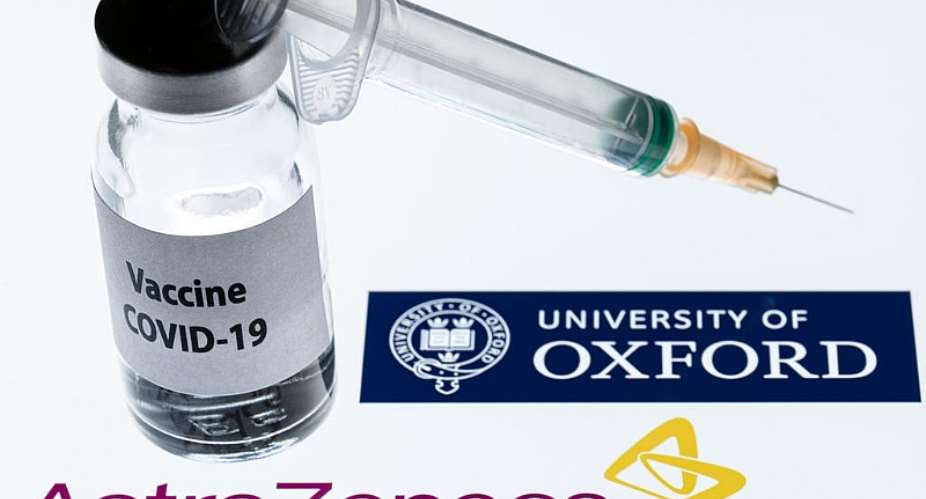The Serum Institute of India has applied for an emergency use license of the coronavirus vaccine being developed by the University of Oxford and pharma giant AstraZeneca.
Adar Poonawala, 39, the CEO of the Serum Institute of India (SII), is hopeful that emergency licensing of the vaccine Covishield will take a month or two before his company then ramps up production.
“We have already produced about 50 million doses and soon we will double and triple the production by January-February. We are looking at 100 million doses a month as output after,” Poonawala told RFI.
Clinical trials have been more than enough to prove the vaccine's efficacy and in some ways SII took a gamble to mass produce the vaccine after it showed promise in the pre-clinical phase and progressed to human trials.
“There was a stressful time but now we are in an auto-pilot mode, waiting for the results to come in. If I didn't do what I did at that time in May, we probably would not have had the vaccine for another 6 month in terms of production and stockpiling,” said Poonawala.
Poonawalla said that he has put $250 million of his family fortune into ramping up his institute's manufacturing capacity. SII also received at-risk pre-funding of $300 million from the Bill and Melinda Gates Foundation and through GAVI, a sponsor of immunizations for low-income nations.
Based in the western Indian city of Pune, SII makes 1.5 billion vaccine doses every year, and the company currently produces around 20 vaccines for 165 countries.
Over the last week, Prime Minister Narendra Modi has held several meetings with pharmaceutical company executives and heads of state governments to chalk out the way forward of vaccinating India's 1.3 billion plus population.
“The first few 100 million doses will go the government for frontline health workers and the elderly. It will be available to the ordinary citizen from a chemist or hospitals by March or April next year,” said Poonawala.
Days after United Kingdom's authorisation for Pfizer's dose, observers feel this as an indication that emergency approval may be fast-tracked for the Oxford-AstraZeneca vaccine.
Data from final trials in the UK and Brazil have shown the vaccine to be between 62% and 90% effective, depending on the dosage.
It will sell at $3 a dose for the Indian government. Pfizer and BioNTech are reportedly charging $20 per dose for the vaccine, significantly lower than Moderna's candidate which is expected to cost around $32-$37.
“India and Africa cannot afford such expensive vaccines especially if you have to vaccinate huge populations, both would need 6 billion doses,” said Poonawala.
Senior government officials said that India may not need to vaccinate all of its 1.3 billion people if it manages to inoculate a critical mass and break the virus' transmission.
World Health Organization experts have pointed to a 65-70% vaccine coverage rate as sufficient to reach population immunity.
At present, three prominent vaccine candidates are being tested in India, only one of which – Covishield - had reached Phase-3 trials. The other two candidates, being tested by Zydus Cadilla and Bharat Biotech, are in Phase-2 trials.





 Chairman Kingsley Owusu Brobbey calls for Privatization of Electricity
Chairman Kingsley Owusu Brobbey calls for Privatization of Electricity
 Train accident: Four more grabbed and remanded
Train accident: Four more grabbed and remanded
 Gov't to consolidate cash waterfall revenue collection accounts
Gov't to consolidate cash waterfall revenue collection accounts
 Gov't to settle lump sum for retired teachers by April 27
Gov't to settle lump sum for retired teachers by April 27
 Former PPA CEO granted GH₵4million bail
Former PPA CEO granted GH₵4million bail
 Dumsor: The darkness has exposed you; you’ll go down as the worst in Ghana’s his...
Dumsor: The darkness has exposed you; you’ll go down as the worst in Ghana’s his...
 Dumsor: The ‘incompetent’ person provided a timetable whiles those who came to s...
Dumsor: The ‘incompetent’ person provided a timetable whiles those who came to s...
 Defend, ensure NPP’s good works are ‘sold’ and highlight the ‘bad’ state of the ...
Defend, ensure NPP’s good works are ‘sold’ and highlight the ‘bad’ state of the ...
 Bawumia will rank high ahead of Mahama in any anti-corruption test — Salam Musta...
Bawumia will rank high ahead of Mahama in any anti-corruption test — Salam Musta...
 NPP trying to bribe us but we‘ll not trade our integrity on the altar of corrupt...
NPP trying to bribe us but we‘ll not trade our integrity on the altar of corrupt...
